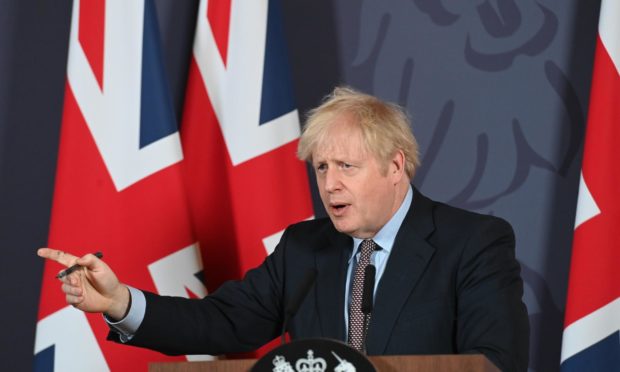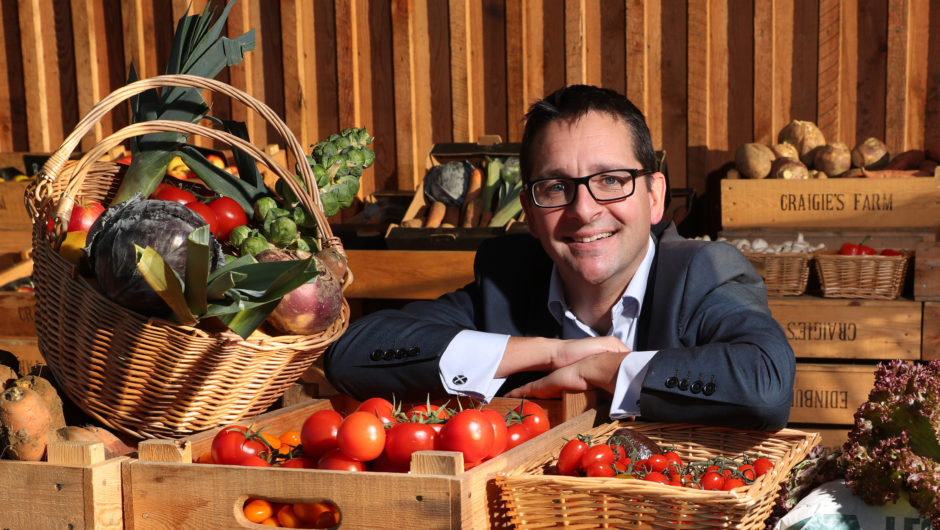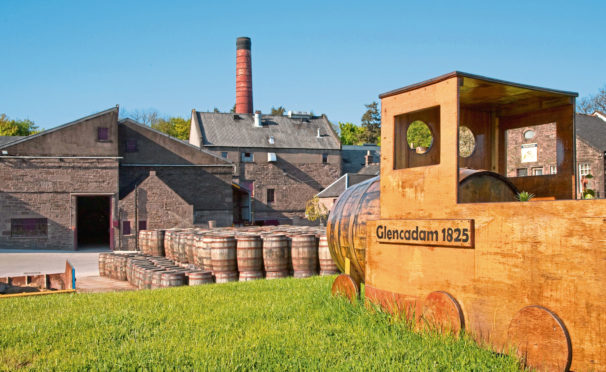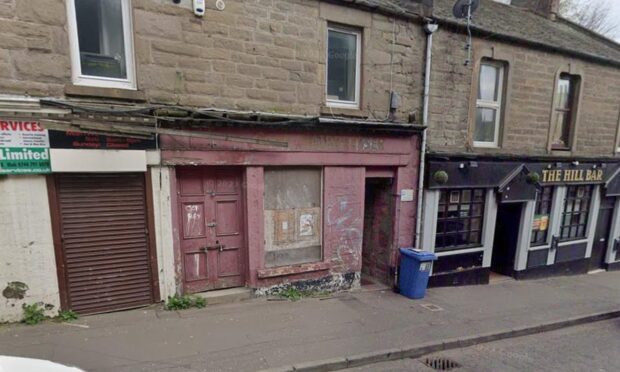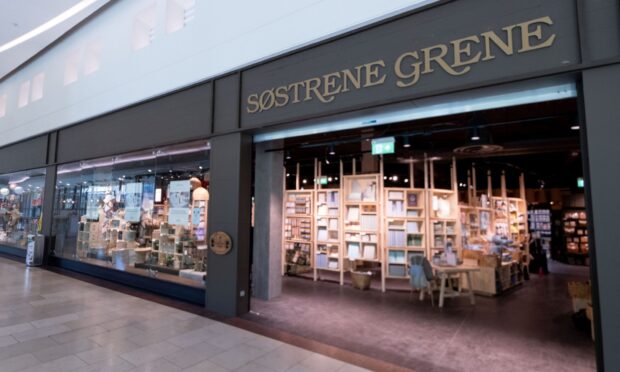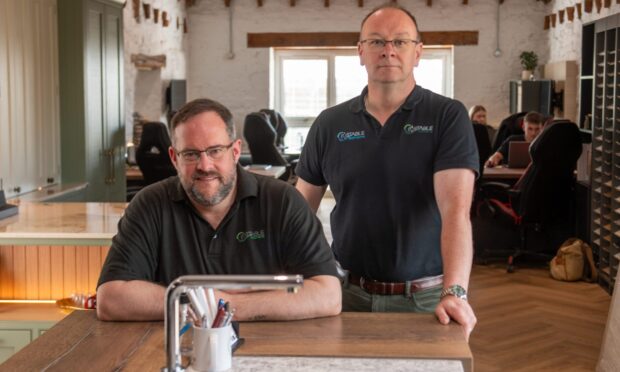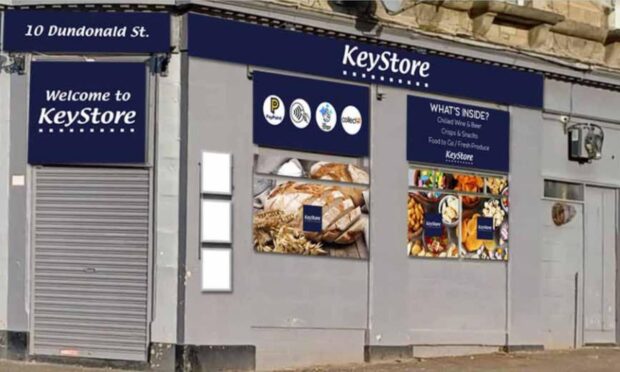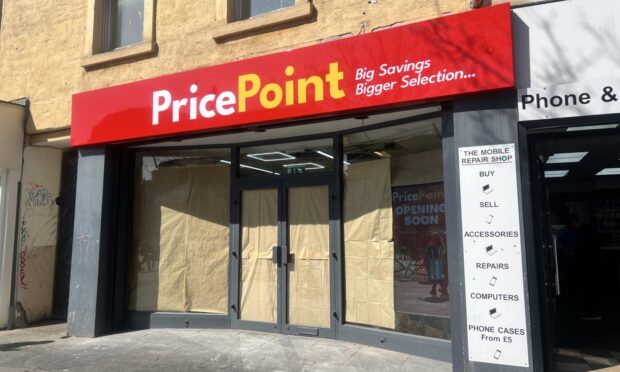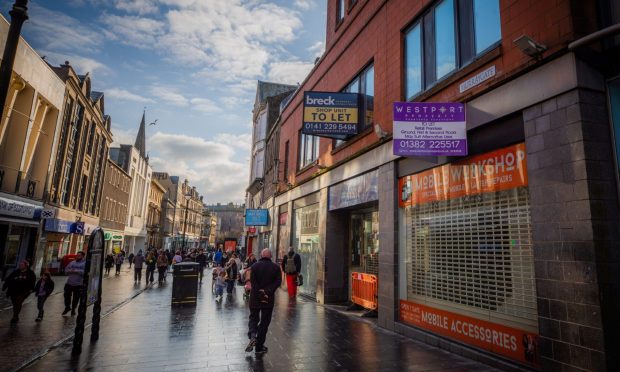“Running this deal down to the wire helps no-one at the end of an incredibly difficult year.”
A post-Brexit trade deal has been welcomed by Courier Country companies – despite anger at how the process has been handled.
The deal was finally secured on Christmas Eve, a week before current trading arrangements expire.
It was hailed by Prime Minister Boris Johnson as delivering “everything that the British public was promised during the 2016 referendum”.
The deal is done. pic.twitter.com/zzhvxOSeWz
— Boris Johnson (@BorisJohnson) December 24, 2020
Downing Street said the deal was the first free trade agreement based on zero tariffs and zero quotas that has ever been achieved with the EU.
No tariffs but still increased costs
It avoids the imposition of tariffs on goods from January 1, but Dale Harris, chief executive of ATL Turbine Services in Dundee, said there would still be increased costs for UK companies.
He said: “A deal is good news compared to the alternative. It means tariffs are avoided and it makes it easier for customers in Europe to send work to the UK.
“However, we are still going to have to do lots more customs administration – there’s still additional cost.
“We are glad there is a deal but it is disappointing the deal has happened so late.
“Like everyone else, upon the advice of the Government, we had to prepare for no-deal.
“We have had to build up our stocks, undergo training and it may have caused some of our European customers to not send work to us in the same volumes.”
The post-Brexit trade deal has been agreed by negotiators from the UK and the European Union after months of talks and frantic last-minute wrangling.
“Relief” was the word used by both European Commission president Ursula von der Leyen and EU chief negotiator Michel Barnier in their press conference on Thursday afternoon.
Avoids cost-cutting
Stephen Barlow, the managing director of Arbroath components manufacturer Interplex PMP, said the deal avoided a cost-cutting process which would otherwise have been necessary to retail the firm’s status-quo.
He said: “I really welcome the announcement of a deal that ensures the on-going trading relationships we currently enjoy and have flourished under.
“Almost everything we manufacture in Arbroath ends up in overseas markets, mostly exported directly to Europe but also further afield including Asia and Americas under the current EU arrangement.
“Although the new deal was always going to be less than we enjoyed as a full EU member, any agreement that avoids no-deal is better from my perspective.
“It means we avoid paying new duties and the level of cost cutting that would become necessary just to retain our status quo.
“Also of importance is the talented staff we employ, many from EU countries, and hopefully the deal will recognise their importance and value to us.”
Grasp new opportunities
Jean-Christophe Granier, joint managing director of textile firm J&D Wilkie of Kirriemuir, said the company would now focus on making the most of opportunities that come from Brexit.
He said: “Brexit has been an opportunity for Wilkie to create new, and grow existing, partnerships with our customers and suppliers alike.
“Clarity and certainty from a deal will enable Wilkie with our advanced textile technology proposition to build upon these strong partnerships and enable us to continue to increase our technology offering.”
Early Christmas present
Alison Henderson, chief executive of Dundee and Angus Chamber of Commerce, said demand for the group’s customers and export service had never been higher.
She said local businesses had been desperate for information as they adjust to new trade requirements.
“Businesses are telling us that they’ve been waiting for a deal as they needed more information and will now need to carefully look at how the detail of this impacts them,” she said.
“Running this deal down to the wire helps no-one at the end of what has been an incredibly difficult year.
“International trade is an essential and strong part of our economy.
“We know there will be opportunities arising from the Brexit deal and look forward to local businesses grasping them with both hands.
“Let’s hope that this deal is the early Christmas present that businesses had on their lists.”
Oppressive year for small Scottish firms
Federation of Small Businesses Scotland policy chair Andrew McRae struck a note of cautious optimism but said additional Government support would be required.
He said: “The agreement sounds like good news for Scotland’s business community. But until we understand the detail of the deal, it is difficult to forecast the overall impact on smaller firms north of the border.
“The end of the transition period will still result in a major change in trading conditions for many firms.
“Given that Scotland’s smaller firms have faced down an oppressive year, we need to see the UK Government help smaller operators.
“We need to see a transition voucher scheme, as well as additional publicly funded support, rolled out as soon as possible.”
Deal comes ‘ridiculously late’
James Withers, chief executive of Scotland Food & Drink, said the “ridiculously late” deal avoided tariffs of up to 80% on key food exports.
He warned: “Before Ministers start popping champagne corks, they need to be alive to the danger of more disruption at our ports in just a few days’ time.
“The tariff threat is averted but we remain hugely concerned at the wave of new export checks about to be introduced.
“For months now we have been warning the UK Government of disruption and a lack of readiness. We have lost a transition period to a pandemic and it is only with a week to go that we now know what we are transitioning to.
“Businesses cannot afford more disruption after a nightmare year and a Christmas export trade that has been ruined for many. If they face more losses through no fault of their own, UK Government will have to be ready with financial aid.
“With four working days until the end of the year, there are around 2,000 pages of detail to analyse.”
Gargantuan task to read 2,000 page deal
British Chambers of Commerce director general Adam Marshall said “breathing space” would be required for companies to adapt to the new arrangements.
He said: “While firms will welcome the agreement of a new foundation for UK-EU trade, they are now faced with the gargantuan task of adapting to new arrangements with scarcely a week before they take effect.
“Businesses will need to digest the contents of the deal and consider what its provisions mean for the movement of goods, people and data across borders, as well as for their supply chains and partners.
“We repeat that it is the responsibility of Government to give firms clear, precise and detailed guidance so that they can make the required changes quickly. Far too many details and procedures have been left, literally, to the last minute.
“Governments on both sides must recognise the impossible task they have set businesses and give businesses time and breathing space to adjust to new realities. It is normal for free trade agreements to come with phasing-in measures, and this one should be no different.
“It is now time to bring the political drama of the last four years to an end, and to replace it with pragmatism and determination to make the new UK-EU relationship work.”
